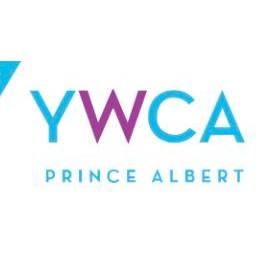Technology
YWCA program empowers Prince Albert youth to overcome barriers and build careers
For many young people in Prince Albert, finding a job isn’t just about sending out resumes; it’s about overcoming barriers that make even getting started difficult. That’s where the YWCA’s Employment Support Program for Youth steps in.
Program coordinator Vicky Livingstone said that initiative supports residents aged 16 to 29 who face obstacles ranging from a lack of ID or housing to issues with confidence or motivation.
“Our goal is to bridge that gap by providing them with tools and one-on-one support,” she said.
Participants go through several weeks of training that combines employment readiness with life skills. The curriculum includes resume and cover letter building, mock interviews, and public speaking sessions through Toastmasters. Financial literacy workshops led by Affinity Credit Union cover topics such as budgeting, taxes, and credit.
“Finding a job is probably the easy part,” Livingstone said. “It’s maintaining that job in the long run that takes practice and support.” She explained the program helps youth strengthen workplace communication, accountability, and reliability, all through guided exercises and discussions.
Each intake includes about 16 participants, with three sessions held annually in February, June, and October. The upcoming session begins Oct. 27 and runs until early January. The YWCA extended this year’s application deadline to Oct. 24 to accommodate late applicants who still wanted a chance to participate.
The program also provides short-term work placements that often lead to full-time jobs.
“A lot of youth come in unmotivated, but by the second week, you can see the difference,” Livingstone said. “They leave feeling proud and ready to take on the world.”
Livingstone said many graduates go on to secure employment directly through their placements, while others return to continue job searching with YWCA support. Even small steps, like obtaining an ID or stable housing, are counted as successes.
Looking ahead, the YWCA plans to bring in new speakers and develop future employment programs once funding is confirmed. Livingstone emphasized that lasting progress requires community understanding and patience, especially for Indigenous youth who make up a significant portion of participants.
For many young people in Prince Albert, finding a job isn’t just about sending out resumes; it’s about overcoming barriers that make even getting started difficult. That’s where the YWCA’s Employment Support Program for Youth steps in.
Program coordinator Vicky Livingstone said that initiative supports residents aged 16 to 29 who face obstacles ranging from a lack of ID or housing to issues with confidence or motivation.
“Our goal is to bridge that gap by providing them with tools and one-on-one support,” she said.
Participants go through several weeks of training that combines employment readiness with life skills. The curriculum includes resume and cover letter building, mock interviews, and public speaking sessions through Toastmasters. Financial literacy workshops led by Affinity Credit Union cover topics such as budgeting, taxes, and credit.
“Finding a job is probably the easy part,” Livingstone said. “It’s maintaining that job in the long run that takes practice and support.” She explained the program helps youth strengthen workplace communication, accountability, and reliability, all through guided exercises and discussions.
Each intake includes about 16 participants, with three sessions held annually in February, June, and October. The upcoming session begins Oct. 27 and runs until early January. The YWCA extended this year’s application deadline to Oct. 24 to accommodate late applicants who still wanted a chance to participate.
The program also provides short-term work placements that often lead to full-time jobs.
“A lot of youth come in unmotivated, but by the second week, you can see the difference,” Livingstone said. “They leave feeling proud and ready to take on the world.”
Livingstone said many graduates go on to secure employment directly through their placements, while others return to continue job searching with YWCA support. Even small steps, like obtaining an ID or stable housing, are counted as successes.
Looking ahead, the YWCA plans to bring in new speakers and develop future employment programs once funding is confirmed. Livingstone emphasized that lasting progress requires community understanding and patience, especially for Indigenous youth who make up a significant portion of participants.




